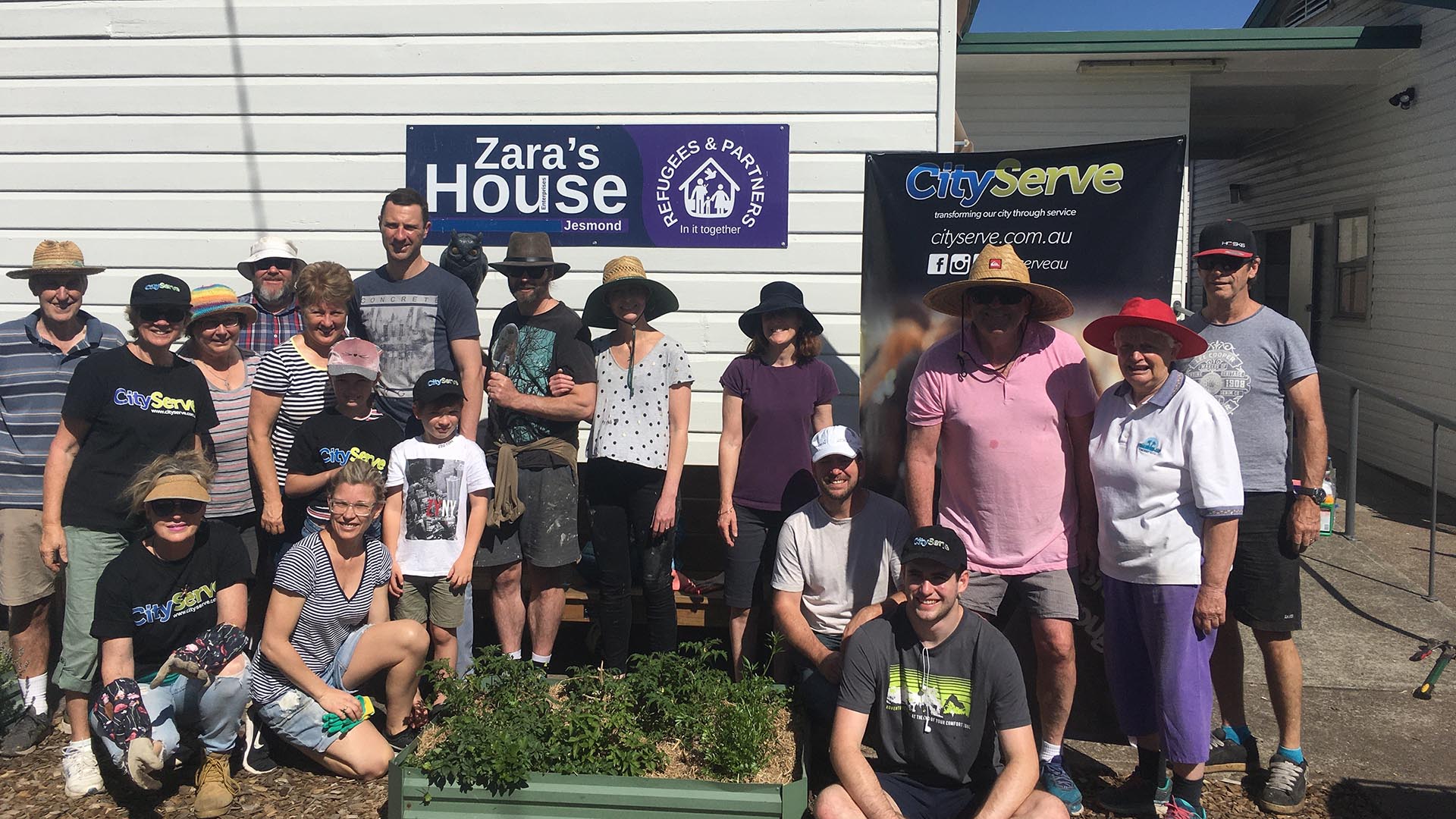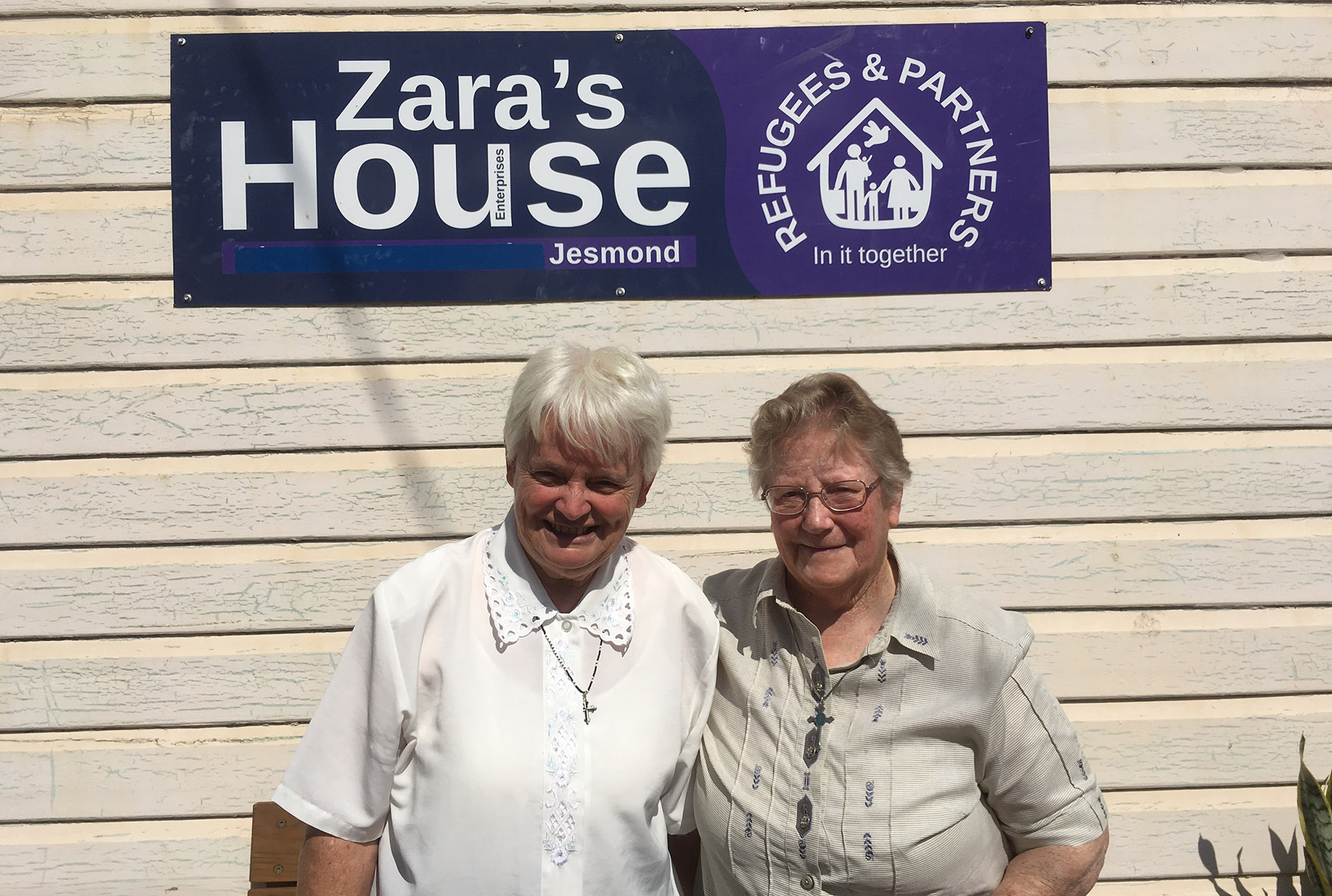
Zara’s House Refugee Women’s and Children’s Centre is located in Jesmond and supports women as they rebuild their lives after fleeing conflict and experiencing the loss of family, home and country.
Port of Newcastle is proud to partner with Zara’s House in support of their Flourish in Newcastle program, which will engage local tradespeople and volunteers to transform the not-for-profit’s outdoor area. The works include tree planting, an upgrade to the chook run and the design of a mural celebrating the Port of Newcastle, making it a functional and serene place for the people who benefit from the services Zara’s House provides.
Sister Diana Santleben, Zara’s House Secretary, provides an overview what the services they provide and how they have adapted during the COVID-19 situation:
What kind of services does Zara’s House Refugee Women’s and Children’s Centre provide?
Zara’s House is a secular not-for-profit charity that operates a centre for refugee women and children, in Jesmond – one of Newcastle’s most vulnerable socio-economic suburbs. We are all volunteer members and offer our support as friends to refugee women. The service includes bilingual learning, literacy, citizenship test preparation, tutoring for adolescent students, early childhood education services and opportunities in a welcoming multi-cultural environment.
Tell us about your volunteers and what led them to Zara’s House?
Volunteers from Zara’s House have a passion for making newcomers feel welcome to Newcastle. Membership is $5 per year and most of us are either former migrants or refugees. One of our members lost her mother in the Nazi concentration camps.
As Newcastle residents we are also proud of our long history of providing a strong welcome to the hundreds of thousands of settlers to our city.
Volunteers are a mix of retired teachers, nurses, shop assistants, electricians, business administrators or simply Novocastrians with a big heart.
What has the experience been like at Zara’s House and adapting to COVID-19?
In January and February, we thought we would be starting an enjoyable year together, with a predictable schedule of classes and services. However, by 17 March we felt that our continued operation was simply too dangerous. We closed from Saint Patrick’s Day and opened again on the day that Ramadan ended on 26 May. There was also a further closure for a fortnight in August.
Our opening, however, was only for an hour or two because we had to be much more vigilant with cleaning, sanitising, checking and registering all visitors and monitoring everyone’s temperature.
One of our greatest anxieties is many of us are aged over 70 and our migrant families have very limited skills in social distancing.
What interesting things are currently happening at Zara’s House?
Thanks to the sponsorship received from Port of Newcastle, we placed orders in mid-winter for fruit and ornamental trees. We have taken delivery of 16 white crepe myrtles, five fruiting plum trees, five Coratina olive trees, six grape vines and an orange tree.
We have constructed a grape trellis and have completed a wicking veggie and herb garden.
Our chook run has been upgraded and Hunter Water will shortly complete their part of the project before we can move on to the next stages of stormwater harvesting.
Now that spring has arrived, our activity will become more intensive. We are in the early stages of designing our mural celebrating the Port of Newcastle and giving acknowledgement to all of our friends and supporters.
Favourite memory or activity involving the port?
For me personally it has to be my carrying of the Queen’s Commonwealth Games baton while riding on a tug up the harbour as the sun rose on the morning of the baton welcome to Newcastle. I will never forget the stunning beauty of the world that lovely morning.
Click here to find out more about Zara’s House.

Pictured: Sister Diana Santleben and Sister Betty Brown.
Port of Newcastle
Port of Newcastle is a major Australian trade gateway handling 4,600 ship movements and 171 million tonnes of cargo each year. With its annual trade worth about $25 billion to the New South Wales economy, the Port enables businesses across the state to successfully compete in international markets. With a deepwater shipping channel operating at 50% of its capacity, significant port land available and enviable access to national rail and road infrastructure, Port of Newcastle is positioned to further underpin the prosperity of the Hunter, NSW and Australia. As custodians of the region’s critical asset, Port of Newcastle is diversifying its trade as it strives to create a safe, sustainable and environmentally and socially responsible Port that realises its potential.
